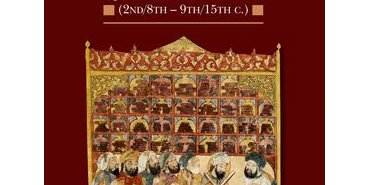L’editeur
Karen Bauer (PhD, Princeton, 2008) est chercheure a l’IIS (The Institute of Ismaili Studies). Elle est specialiste de l’histoire sociale et intellectuelle du monde islamique islamique. Ses centre d’intérêts comprennent le Coran et son interprétation (tafsir), les questions de genre. Une grande partie de son travail est motivé par la question de l’influence des contextes sociaux et intellectuels sur le contenu des textes.
Présentation
Essays written by leading scholars, who provide multiple perspectives on the interpretation of the Qur’an
Focuses on the genre of tafsīr in the 2nd/8th to the 9th/15th centuries and shows how theories and contexts affect the content and method of exegesis
Individual essays emphasise how geography, human networks, hermeneutical systems and genre boundaries affected the writing of tafsīr
Includes Arabic editions and translations of two introductions: al-Basīt by al-Wāḥidī and the Tahdhīb ī Tafsīr al-Qur’ān of al-Jishumī, as well as the translation of sections of the tafsīr of al-Kāshānī
Proposes new methods for the study of the genre of tafsīr
Medieval interpretations of the Qur’an often serve as points of reference for Muslim thought; yet Qur’an commentaries were shaped not only by the Qur’an itself, but also by their authors’ ideological viewpoints, their theories of interpretation, their methods, and the conventions of the genre. This volume is the first to focus solely on the complicated relationship between exegetes’ theoretical aims, their practical methods of writing, and the historical and intellectual contexts of Qur’an commentaries (tafsīr). Experts in various aspects of the Qur’an and its interpretation have contributed essays, spanning the 2nd/8th to the 9th/15th centuries, the period in which the commentarial tradition developed and flourished. They emphasise the ways in which geography, human networks, hermeneutical systems and genre boundaries affected the writing of these texts. This volume offers fresh analytical perspectives and addresses new methods for the study of tafsīr. It also provides resources for scholars, by including editions and translations of the introductions to al-Basīt of Abū’l-Ḥasan ’Alī al-Wāḥidī (d. 486/1076) and the Tahdhīb fī Tafsīr al-Qur’ān of al-Ḥākim al-Jishumī (d. 494/1101), as well as translated selections from the introduction to the tafsīr of ’Abd al-Razzāq al-Kāshānī (d. 736/1336). The detailed studies in this volume will help scholars and students alike to comprehend accurately the purpose and content of Qur’an commentaries individually and as a genre.
Contributeurs
Karen Bauer, Research Associate, Qur’anic Studies, The Institute of Ismaili Studies
Contributors:
Feras Hamza
Karen Bauer
Walid A. Saleh
Suleiman A. Mourad
Robert Gleave
Andrew Rippin
Roberto Tottoli
Martin Nguyen
Tariq Jaffer
Ludmila Zamah
Stephen Burge
Claude Gilliot
Michael E. Pregill
Table des matières
1: The Aims of Tafsīr
1: Feras Hamza: Tafsīr and Unlocking the Historical Qur’an: Back to Basics?
2: Karen Bauer: The Aims of Tafsīr, According to Introductions, 10th-12th Centuries
3: Walid A. Saleh: The Introduction of al-Basīt of al-Wāḥidī: An Edition, Translation and Commentary
4: Suleiman A. Mourad: Toward a Reconstruction of the Mu’tazilī Tradition of Qur’anic Exegesis: Reading the Introduction of the Tahdhīb of al-Ḥākim al-Jishumī (d. 494/1101)
2: Methods and Sources of Tafsīr
5: Robert Gleave: Early Shi<’i Hermeneutics: Some Exegetical Techniques Attributed to the Shi<’i Imams
6: Andrew Rippin: The Construction of the Arabian Historical Context in Muslim Interpretation of the Qur<’an
7: Roberto Tottoli: Methods and Contexts in the Use of Hadiths and Traditions in Classical Tafsīr Literature: The Exegesis of Q. 21:85 and Q. 17:1
8: Martin Nguyen: Letter by Letter: Tracing the Textual Genealogy of a Sufi Tafsīr
9: Tariq Jaffer: Fakhr al-Dīn al-Rāzī’s System of Inquiry: Doubt and the Transmission of Knowledge
10: Ludmila Zamah: Master of the Obvious: Understanding Zāhir Interpretations in Qur’anic Exegesis
11: Stephen Burge: Jalāl al-Dīn al-Suyūṭī, the Mu’awwidhatān and the Modes of Exegesis
3: Contextualizing Tafsīr
12: Claude Gilliot: A Schoolmaster, Storyteller, Exegete, and Warrior at Work in Khurāsān: al-Daḥḥāk b. Muzāḥim al-Hilālī (d. 106/inc. 29 May 724)
13: Michael E. Pregill: Methodologies for the Dating of Exegetical Works and Traditions: Can the Lost Tafsīr of al-Kalbī be Recovered from Tafsīr Ibn <’Abbās (a.k.a. Al-Wādiḥ)?
Bibliography
(Source http://ukcatalogue.oup.com/product/academic/series/religion/qss/9780199670642.do#.UABcA3Ae7-k)

